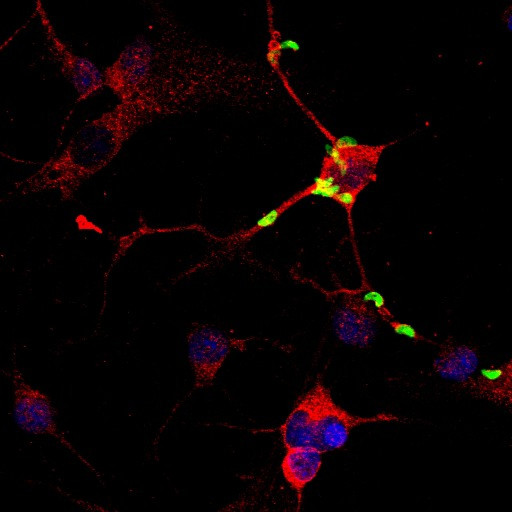Rats Find Cats Sexually Appealing When Infected by a Parasite

Rats, when infected with the parasite toxoplasma, showed activity in the region of the brain that is signals sexual interest, a Stanford University study released last week says.
Toxoplasma plays this sex-trick on rats where they lose their fear of cats which improves cats' chances to prey on them, an essential step in the parasite's reproduction cycle.
We see activity in the pathway that normally controls how male rats respond to female rats, so it's possible the behavior we are seeing in response to cat urine is sexual attraction behavior, but we don't know that, said Patrick House, a PhD candidate in neuroscience at Stanford Medical School. I would not say that they are definitively attracted, but they are certainly less afraid. Regardless, seeing activity in the attraction pathway is bizarre.
For a rat, fear of cats is rational. But a cat's small intestine is the only environment in which toxoplasma can reproduce sexually, so it is critical for the parasite to get itself into a cat's digestive system in order to complete its life cycle, the Stanford University release said.
Scientists have known about toxoplasma's manipulation of rats for years and they knew that rats infected with toxoplasma seemed to lose their fear of cats.
Although the parasite infects the entire brain, it shows a preference for a region of the brain called the amygdala, which is associated with various emotional states. Once in the brain, the parasite forms cysts around itself, in which it essentially lies dormant.
Researchers analyzed certain subregions of the amygdala that focus on innate fear and innate attraction. In healthy male rats, cat urine activated the fear pathway.
But in the infected rats, although there was still activity in the fear pathway, the urine prompted quite a bit of activity in the attraction pathway as well. Exactly what you would see in a normal rat exposed to a female, House said.
Toxoplasma is altering these circuits in the amygdala, muddling fear and attraction, he said.
Approximately one third of the world's human population is infected with toxoplasma. For most people, it appears to present no danger, although it can be fatal in people with compromised immune systems. It can also can cross the placental barrier in a pregnant woman and lead to many complications, which is why pregnant women are advised not to clean cat litter boxes.
There are a couple dozen studies in the last few years showing that if you have schizophrenia, you are more likely to have toxoplasma. The studies haven't shown cause and effect, but it's possible, House said. Humans have amygdalae too. We are afraid of and attracted to things - it's similar circuitry.
House said humans acquire the parasite by eating undercooked meat or eating little bits of cat poop, which I suspect happens more often than people want to admit.
© Copyright IBTimes 2024. All rights reserved.






















